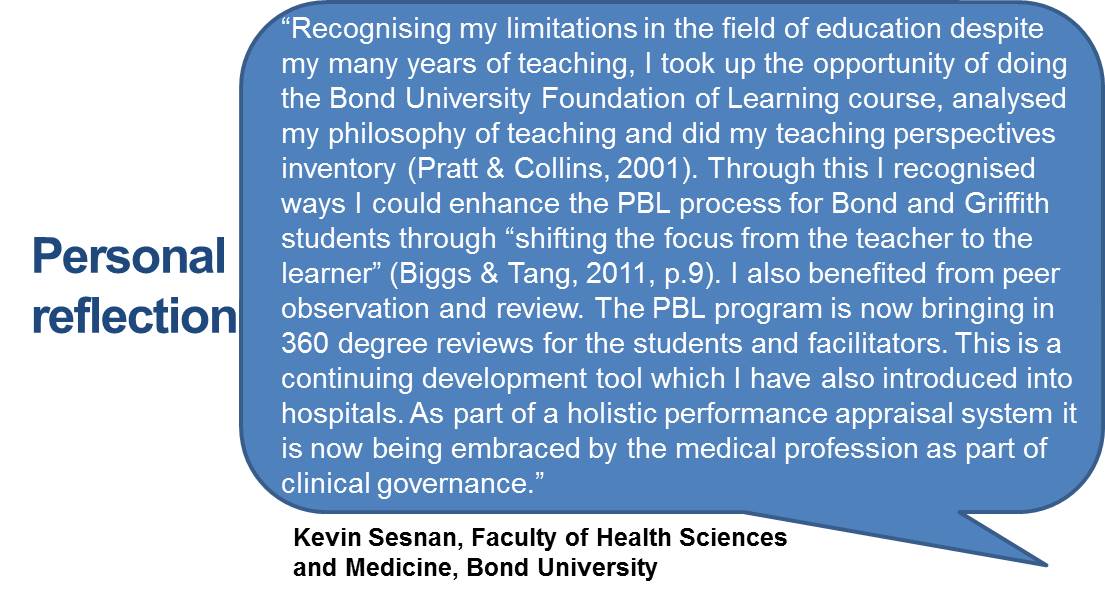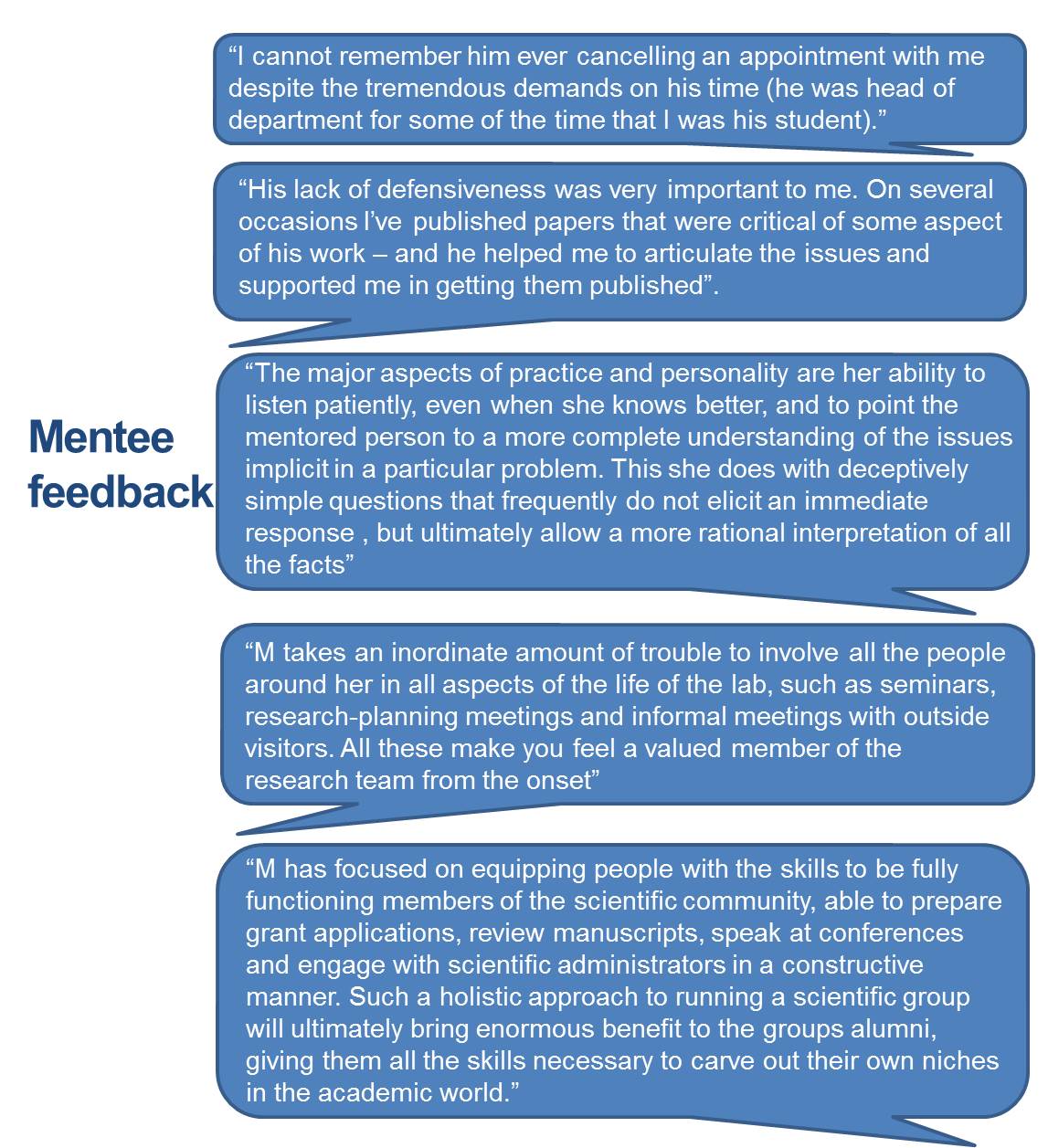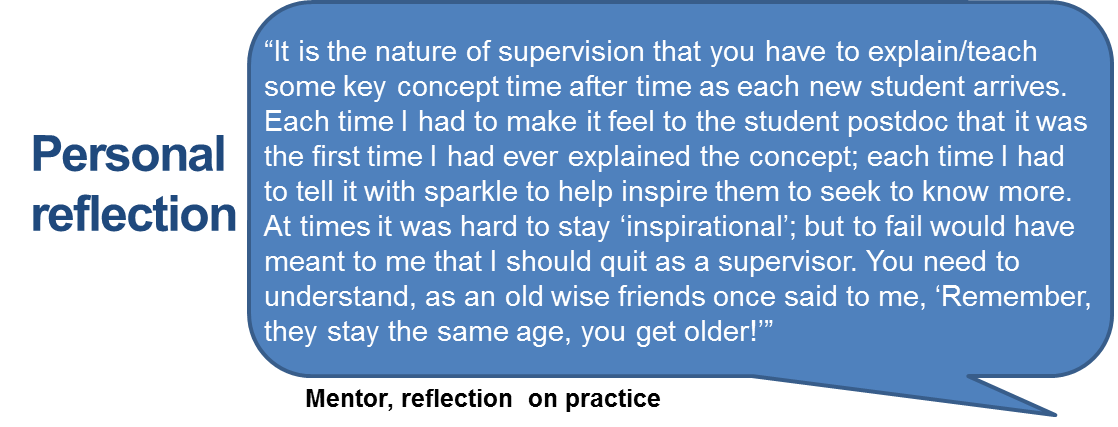Criterion 7
Exemplars
Criterion 7 | Professional and personal effectiveness
Exemplar 1 – Kevin Sesnan, Faculty of Health Sciences and Medicine, Bond University
In this teaching award application Kevin reflects on his commitment to professional development in teaching and learning, self-reflective evaluation of practice and positive response to new approaches.
Wood, K. Knight, D, & Kinash, S (Eds.) (2012). Scholarship of teaching and learning @ Bond: Fostering early career research (Vol. 2). Queensland, Australia: Office of Teaching and Learning, Bond University, pp. 176-182.
Exemplar 2 – Natures guide for mentors
This article highlights the attributes of good mentorship, drawing from evidence in support of Nature awards nominations for creative mentoring in science. Direct quotes from mentors and their mentees exemplify good practice in mentoring and leadership as well as other attributes of professional and personal effectiveness such as; ownership and prioritisation of a teaching role, effective communication, application of professional ethics, teaching enthusiasm and passion, effective time management and genuine commitment to students and their learning. The article is a rich source of examples of ‘evidence of good practice’ and a good guide to reflecting on and improving mentoring practice.
Lee, A., Dennis, C. & Campbell, P. (2007) Natures guide for mentors. Nature, 447, pp. 791-797.



